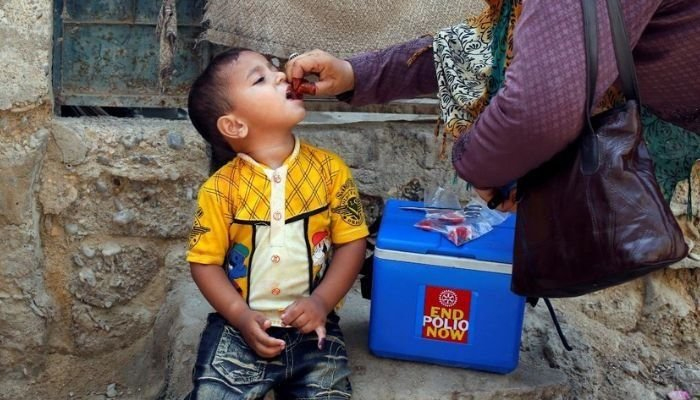Poliovirus found in Bannu, Peshawar, Lahore, Swat
Wild poliovirus has crippled 17 children in Pakistan this year; one has died due to complications of disease
September 10, 2022

- Wild poliovirus has crippled 17 children in Pakistan.
- One has died due to complications of disease.
- 10 positive environmental samples detected in August.
ISLAMABAD: Pakistan’s National Polio Laboratory has detected Type-1 wild poliovirus (WPV1) in the environmental samples collected from Bannu, Peshawar, Lahore, and Swat, The News reported.
“This is the seventh positive environmental sample from Bannu, third from Peshawar and Lahore each and second from Swat this year,” said officials of the National Health Services, Regulations and Coordination.
So far, wild poliovirus has crippled 17 children in Pakistan, of which one died due to the complications of the disease. All these polio cases were reported from North Waziristan and district Lakki Marwat of Khyber Pakhtunkhwa, they said.
Read more: Pakistan detects fresh polio case in North Waziristan
The NHS officials said a total of 10 positive environmental samples have been detected in the month of August, five each from Punjab and KP, taking the tally of positive environmental samples to 21 in the year.
Of these, seven positive environmental samples were detected from Bannu, three from Lahore and Peshawar each, two each from Rawalpindi and Swat, and one each from Nowshera, Bahawalpur, Sialkot, and Islamabad.
In a month-wise break-up, one positive environmental sample was detected in April, two in May, one in June, seven in July, and 10 in August 2022.
Read more: Sewage samples reveal presence of poliovirus in 7 cities
“In 2021, 65 positive environmental samples were detected in the country”, the official added.
To mitigate the risks associated with the wake of detection of poliovirus, an immediate response round (sub-national) was implemented in August.
Starting from September 5, extended outreach activities are also in progress in the districts with recent positive environmental samples.











